Compensation Strategy & Philosophy
Finance Compensation Strategy & Philosophy: 2023
In today’s dynamic landscape for talent, defining a balanced compensation philosophy and crafting an effective rewards strategy is a critical mission for CFOs.
What are the strategic considerations finance leaders are working through, and how are upcoming pay disclosure regulations influencing their decision making?
One minute insights:
 Regular compensation benchmark studies are the most common way that organizations ensure compensation is fair and equitable
Regular compensation benchmark studies are the most common way that organizations ensure compensation is fair and equitable  Three-quarters of respondents cite available talent as a trend impacting their compensation strategy
Three-quarters of respondents cite available talent as a trend impacting their compensation strategy More than half of finance professionals indicate their strategy focuses more on current employees than attracting new hires
More than half of finance professionals indicate their strategy focuses more on current employees than attracting new hires Most finance leaders agree that pay disclosure regulations will make it harder to achieve their compensation goals and will require salary increases
Most finance leaders agree that pay disclosure regulations will make it harder to achieve their compensation goals and will require salary increases
Striving for equity and effectiveness in compensation strategy, finance leaders are embracing benchmarks and employee engagement surveys
Nearly all (98%) respondents rate their compensation strategy as very important (36%) or important (62%) to achieving their organization's overall financial objectives.
How important is your compensation strategy in achieving your organization’s overall financial objectives?

Not very important 0% | Not important at all 0%
n = 88
Note: May not add up to 100% due to rounding.
The most common way organizations ensure their compensation strategies are fair and equitable is by conducting regular compensation benchmarking studies (75%).
How does your organization ensure that its compensation strategy is fair and equitable? Select all that apply.
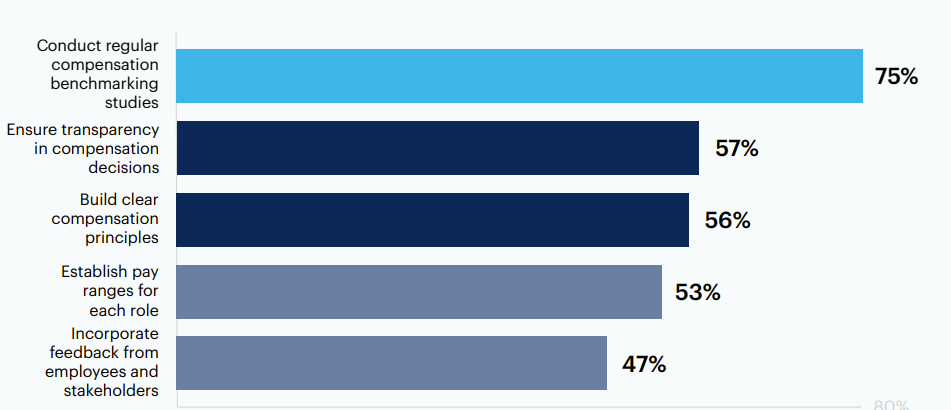
Implement bonus equity policies 41% | Implement pay equity policies 31% | None of these 6%
n = 88
Note: May not add up to 100% due to rounding
64% of finance leaders report that their organization uses employee engagement surveys to measure the effectiveness of their compensation strategy. 58% use employee retention rates, and 57% evaluate compensation cost as a percentage of revenue.
What metrics does your organization use to measure the effectiveness of your compensation strategy? Select all that apply
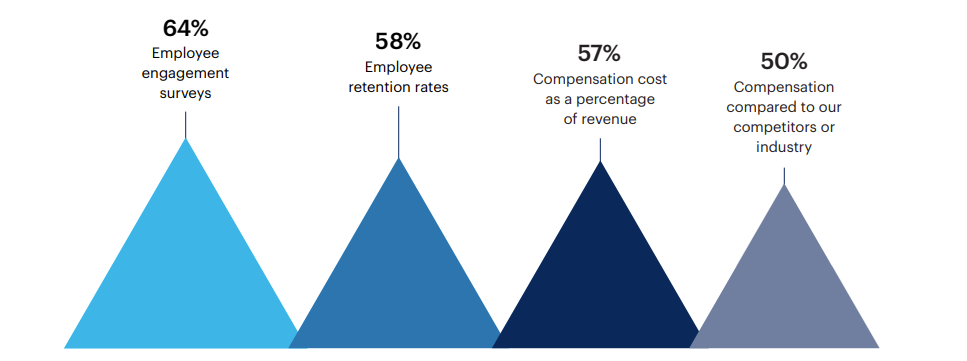
Other 1%
n = 88
Note: May not add up to 100% due to rounding
86% of respondents say that non-financial incentives factor into their compensation strategies a great deal (29%) or a moderate amount (57%)
How much do non-financial incentives and benefits factor into your compensation strategy?
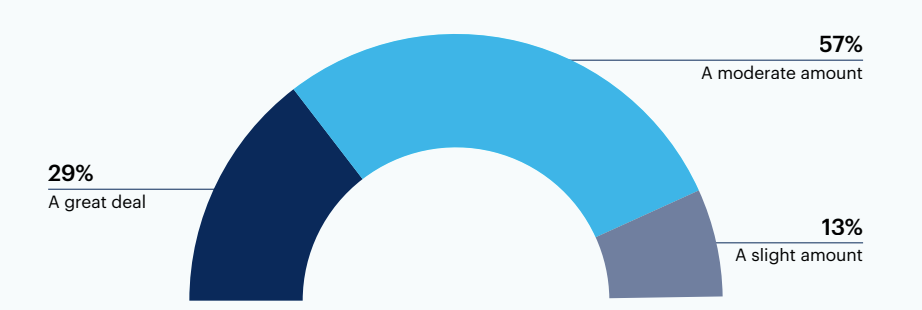
Note: May not add up to 100% due to rounding
n = 88
C-suite leadership and talent availability drive most compensation decisions
Respondents ranked CEO as the top position who gets priority in making compensation decisions, followed by HR and finance.
Please rank the following functions by who gets priority in making compensation decisions.
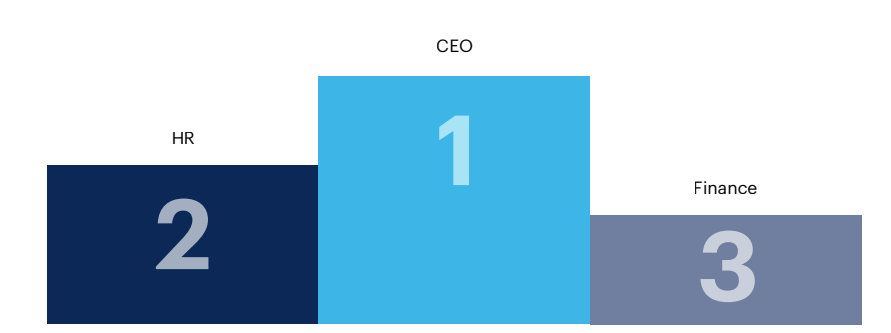
#4 Individual line of business leaders
n = 88
The most commonly selected trend impacting organizations’ compensation strategies and philosophies is available talent (73%).
What current trends are impacting your organization's compensation strategy and philosophy? Select all that apply.
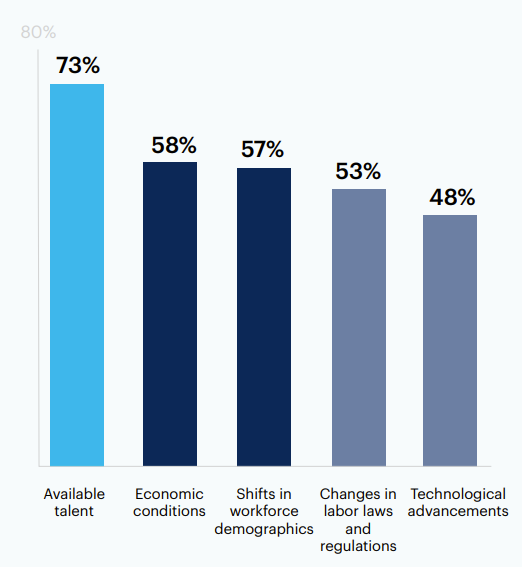
None of these 7%
n=88
Note: May not add up to 100% due to rounding
More than a third of respondents (37%) say they review compensation plans quarterly. 27% review annually, and 25% review plans monthly.
How frequently does your organization review its compensation plans and make necessary adjustments?
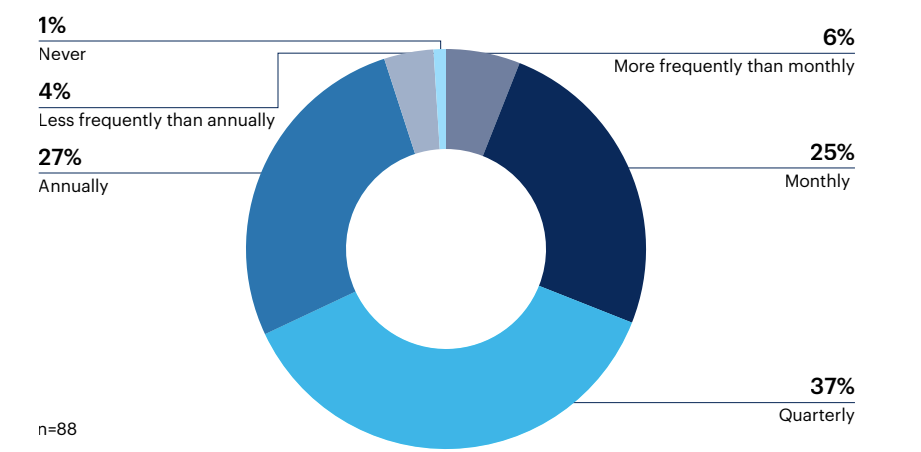
Note: May not add up to 100% due to rounding
With the focus on current employees, finance leaders are concerned about pay disclosure regulations impacting goals, and anticipate salary increases
62% of finance leaders agree (42%) or strongly agree (20%) that new regulations surrounding pay disclosure in job descriptions will make it more difficult to achieve their financial goals.
How do you feel about the following statement: “New regulations surrounding pay disclosure in job descriptions will make it more di icult to achieve our financial goals.”
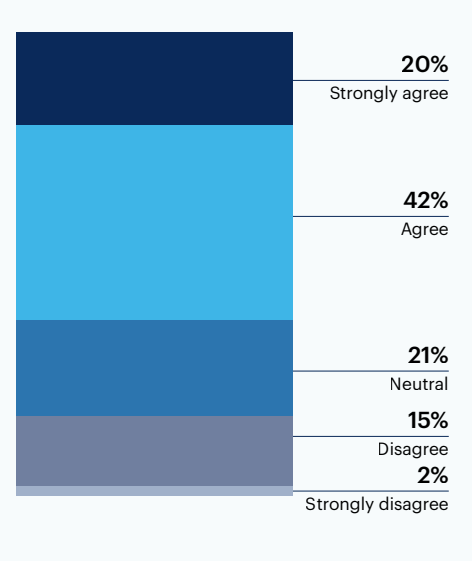
n=88
Note: May not add up to 100% due to rounding
How do you feel about the following statement: “New regulations surrounding pay disclosure in job descriptions will necessitate that we increase our compensation.”
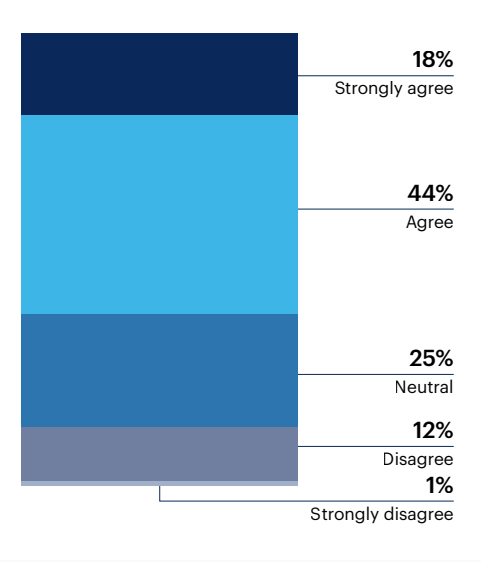
n=88
Note: May not add up to 100% due to rounding
65% of respondents report their organization plans to increase its annual cash bonuses across the next 12 months.
Over the next 12 months, does your organization plan to increase its annual cash bonuses handed to employees?
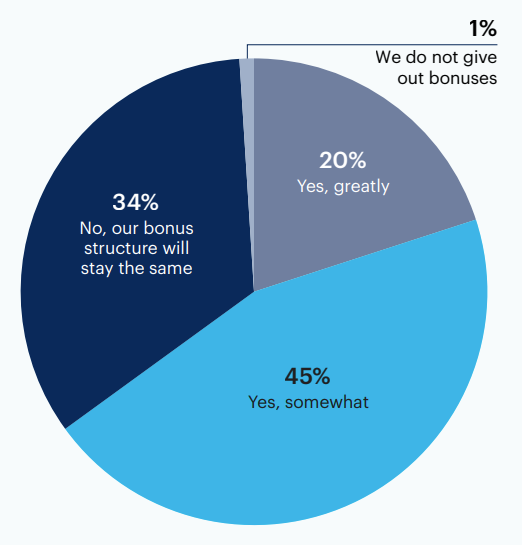
n=88
Note: May not add up to 100% due to rounding
Question: In one sentence, how would you describe your organization’s compensation philosophy?
We believe in pay for performance and align our bonus structure to SMART goals developed by our employees and approved by their management team.
More than half (60%) of finance leaders say base compensation will increase, in concert, with bonuses.
Will this increase in bonuses be balanced with a smaller increase in base compensation?
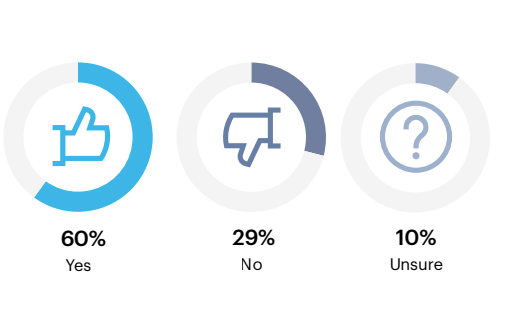
n = 58
Question only shown to respondents who answered “Yes, greatly” or “Yes, somewhat” to the question “Over the next 12 months, does your organization plan to increase its annual cash bonuses handed to employees?
60% of respondents report that their compensation strategy focuses more on current employees, rather than new hires.
How much does your compensation strategy focus on current employees vs. new hires?
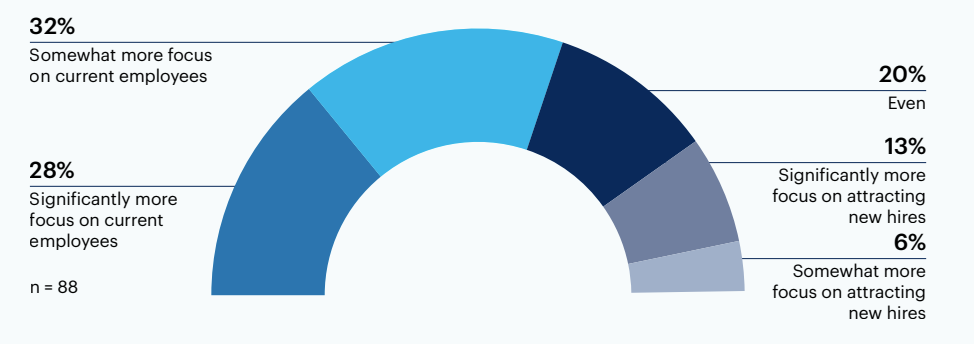
Note: May not add up to 100% due to rounding
Question: In one sentence, how would you describe your organization’s compensation philosophy?
Needs to be more progressive and less out-of-touch. Compensation needs to align with talent strategy. Do we invest more on "recruit" vs "retain"?

Want more insights like this from leaders like yourself?
Click here to explore the revamped, retooled and reimagined Gartner Peer Community. You'll get access to synthesized insights and engaging discussions from a community of your peers.
Respondent Breakdown
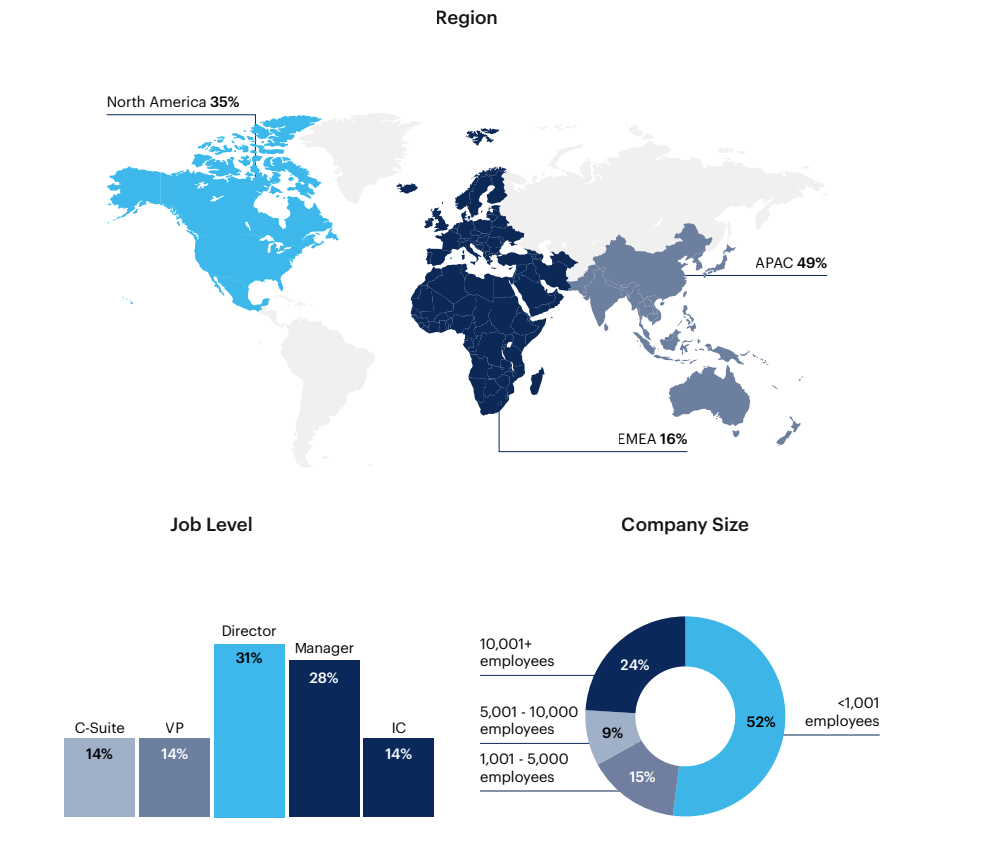
Note: May not add up to 100% due to rounding
Respondents: 88 finance professionals whose organizations have an organized compensation strategy